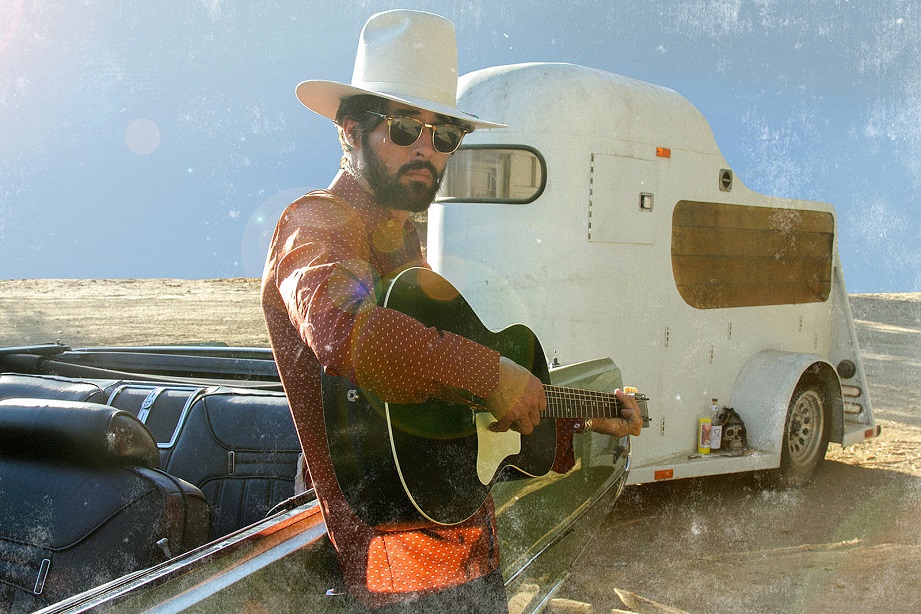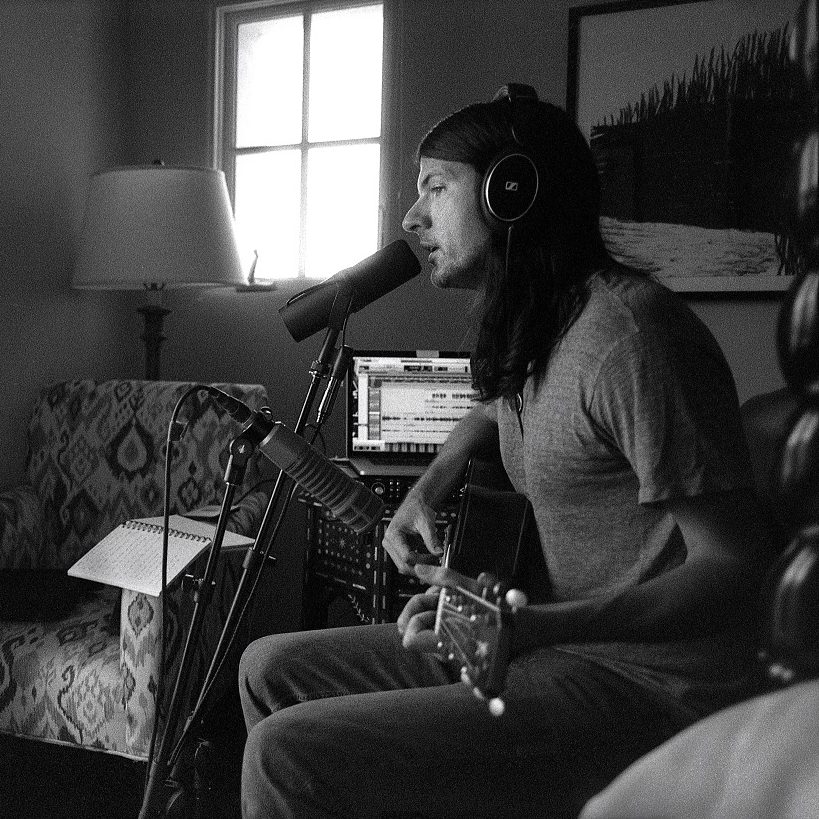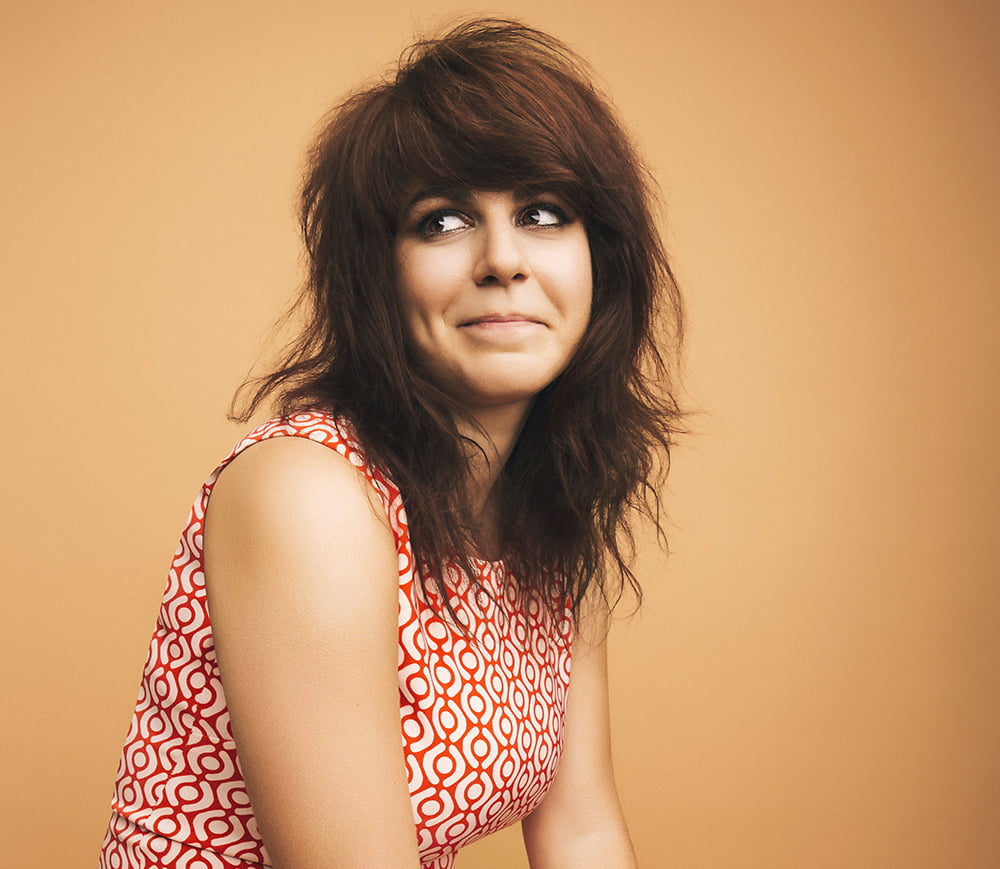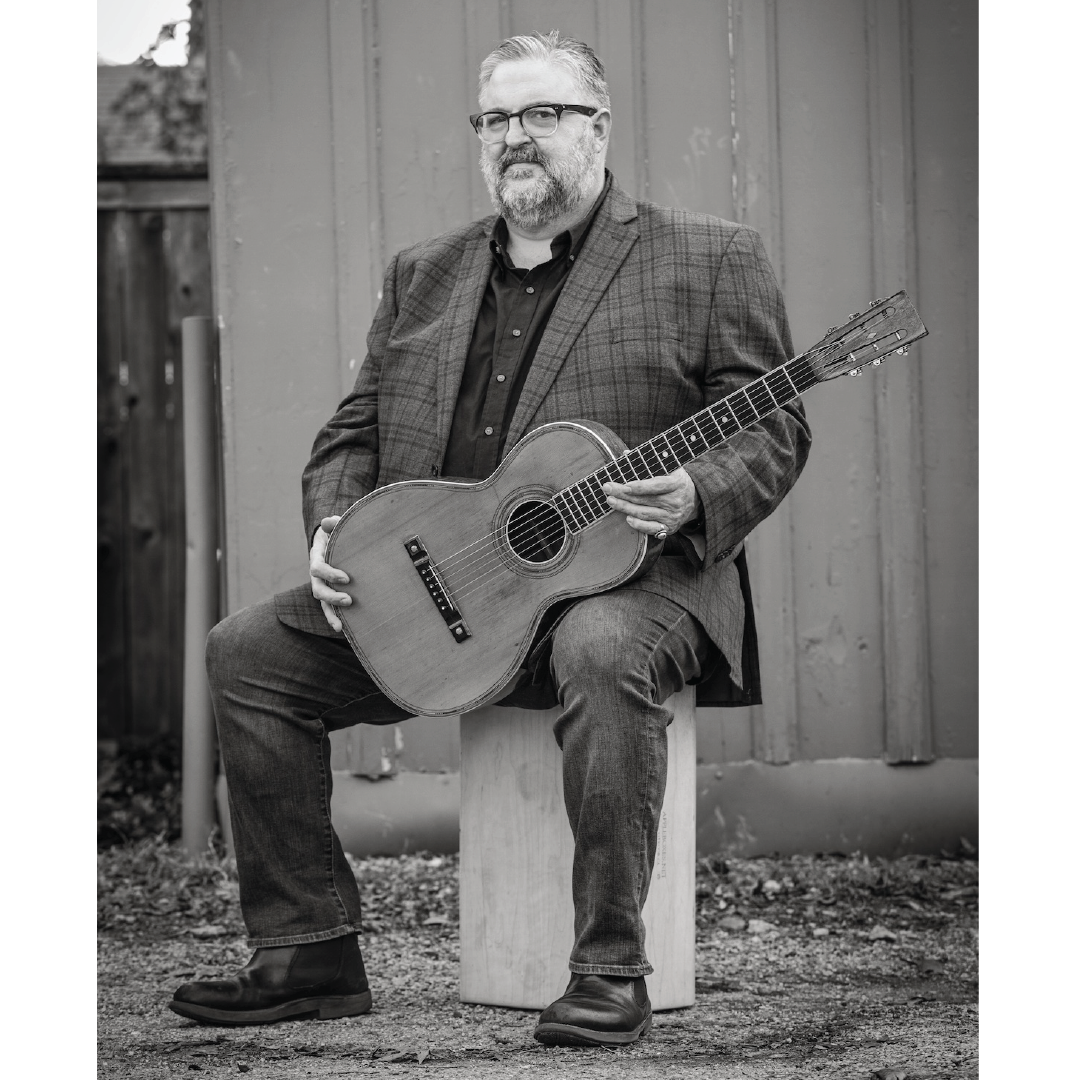When Ryan Bingham accepted an Academy Award in 2010, he looked like he was on top of the world. Amanda Seyfried and Miley Cyrus announced that his song “The Weary Kind,” from the film Crazy Heart, had beaten two compositions by Randy Newman, and he took the stage with producer/co-writer T Bone Burnett, thanking his wife (“I love you more than rainbows, baby”) before showing gratitude to the cast and crew. It was a modest and heartfelt speech, not to mention a rare moment when roots music is given a prominent platform and one of the most prestigious awards in any art form.
A decade later, however, Bingham admits he was in a dark place, unable to enjoy the honor or the opportunities that came with it. “It was pretty tough when that film came out,” says the New Mexico-born/Los Angeles-based singer-songwriter. “A lot of people didn’t know that my mother had passed away just before it came out, and my father passed away soon after. People kept asking me to play that song all the time, and they kept saying, ‘Aren’t you happy about winning an Oscar? You must be having the best time of your life.’ But it was actually one of the hardest things I’ve ever been through. I didn’t know how to talk about it, and I was depressed.”
A downcast tune that captures his mood at the time, “The Weary Kind” is one of those songs that doesn’t sound like it was written; rather, it sounds like it’s been haunting dive bar jukeboxes for decades, even if it dispels any romance that might cling to such locations. “This ain’t no place for the weary kind,” Bingham sings, his voice tender as a bruise. “This ain’t no place to fall behind.”
There’s a danger to this place he’s describing, which might be one of the cramped bars depicted in Crazy Heart or might be something more figurative, like down in the dumps, but the song isn’t exactly grim. Bingham manages to locate a small, precious kernel of hope: “Pick up your crazy heart and give it one more try.”
When asked by the press about the inspiration for the tune, he didn’t talk about his parents or their hard lives. “I would just tell them it was the film and the character,” Bingham says, referring to the main character, a washed-up outlaw country singer named Bad Blake. Played by Jeff Bridges (who won the Best Actor Oscar), Bad drives his trusty Suburban to shows around the Southwest, playing to a handful of aging fans while trading off the notoriety of a few dusty hits from decades ago. A barely functioning alcoholic, he bristles against all opportunities to crawl out of his rut, convincing himself that his knockabout life is somehow noble. In the novel he meets a tragic end, but in Cooper’s film Bad finds a possibility of salvation.
“The Weary Kind” is a remarkable piece of songwriterly ventriloquism, not only showing the obstacles Bad faces but how he feels about them. Cooper devotes several scenes to showing Bad writing those lines, picking out the melody on his guitar, searching diligently for the perfect rhyme. Rarely do movies give so much time and attention to the mundanities of the creative process, but the act of writing that song in the film is a transformative endeavor, a means of confronting his demons and embracing a future that has scared him for so long.
Bingham, however, could find no such solace in the tune. “I was trying to find my place in the world, and I’ve always struggled with my identity — where I was from and what I wanted my music to do. I hadn’t figured that out yet, and I was afraid of getting pigeonholed. I was young and rebelling against notoriety and fame and all that. It was all too heavy for me to bring up without breaking down. People just didn’t know, and that wasn’t their fault. How could they have known?”
Crazy Heart was a modest hit at the box office and a major hit during awards season, but it has proved surprisingly durable and influential over the last decade, too. It provided the template for Bradley Cooper’s remake of A Star Is Born last year, in which the actor-director played a much younger, somehow more grizzled version of Bad Blake. It also put outlaw country in front of a mainstream filmgoing audience, creating a space for such similar fare as Ethan Hawke’s Blaze (about the singer-songwriter Blaze Foley, who was partly an inspiration for Bad Blake).

Since winning an Oscar, Bingham has released four albums, including this year’s roadhouse-ready American Love Song. And he has continued acting, with a role in Cooper’s 2017 western Hostiles and a recurring part on the Paramount Network series Yellowstone, starring Kevin Costner and Wes Bentley. As Crazy Heart’s influence has grown, Bingham’s relationship with its theme song has softened, and he’s learned to embrace “The Weary Kind” and to appreciate its impact on his fans.
“I’ve grown up and grown more comfortable in my own skin. I’ve dealt with family stuff, so it’s been easier to get back into playing that song for people,” he says. To commemorate the tenth anniversary of the film, Bingham spoke with BGS about his impromptu audition, the film’s original downer ending, and growing up in the pool halls and dive bars of New Mexico.
BGS: When you think back on that time, what stands out to you most?
RB: The thing that always stands out to me is the script. I hadn’t written any songs for TV or film before. In fact, the songs that I’d been writing tended to be very personal — about things I’d gone through in my own life. But reading this script and looking at this other character allowed me to get out of my own skin and put myself in the shoes of someone else. I got to live vicariously through them and tell their story through the songs, and at the same time I was able to relate some of my own experiences as well.
And you’re not just writing for a character, but you’re writing for a character as he goes through this ordeal and tries to get his life together.
When I first read the script, the ending was different. They found him dead in a ditch outside some bar. It was really gloomy, so when I was writing that song, I was thinking about this poor son of a bitch dying by the side of the road somewhere. Then they changed the ending later on. I think the original ending was in the novel that Thomas Cobb had written, but I’m glad they changed it.
What kind of direction did you get from Scott Cooper or music supervisor T Bone Burnett?
None at all. I had met Scott just one time. He contacted me and said he was looking for some songs, so I met him for lunch and he told me about the project. I hit the road right after that, and he told me to read the script and let him know if I was inspired to write anything.
When I got home a few months later, I recorded this tune I’d been working on, and I called him up to ask where I should send it. I was just looking for an address, but he said he happened to be in L.A. visiting T Bone Burnett and asked if I could just bring it by.
So I drove over there to drop it off, and T Bone answers the door, all seven feet of him, and says, “Why don’t you come in and play it for us?” It was him and Scott and Jeff Bridges and Stephen Bruton and some other people. So I play him a little bit of the recording, and T Bone says, “That’s cool but can you play it for us yourself?” He gave me a guitar and sat me down on the couch, and I’m like, “Aw fuck, here we go!”
That sounds like a trial by fire.
It was. I wasn’t even sure I could remember it! But they liked it and unanimously decided to use it. I ended up hanging around with them and working on more songs for the film. I think from that point on I was over at T Bone’s house every day writing with those guys.
Did you have people in mind while you were writing? I see Townes Van Zandt and Blaze Foley in the character of Bad Blake.
I had a ton of people in mind. Where I’m from out in Hobbs, New Mexico, right on the Texas border, there are a lot of those characters out there, and one of them in particular was my father. He was very much a character like Townes or Bad, so I wrote the song thinking about my father and his situation.
When I was growing up, he would drag me into these old pool halls and bars. I was barely old enough to see over the bars, but he and his friends would give me quarters for the jukebox or the pool table. They’d all get drunk during happy hour and then I’d drive them all home. I grew up in those rough roadhouse places, and then when I got into writing songs, I discovered all these songwriters from that area, like Townes and Guy Clark and Joe Ely and Terry Allen and Billy Joe Shaver.
Those guys took me under their wing in a big way. I don’t know how many times I’d go see them play a show and they’d invite me up to play a song and introduce me to their audience. They really helped me out a lot and encouraged me to play. I was this young kid from a little town in the middle of nowhere, and I had no direction or any kind of formal lessons. I didn’t have anybody to teach me anything, so those guys were really important to me.
Was your father a musician?
He wasn’t. He was just a straight-up ol’ boozer who worked in the oilfields. My dad and uncles were all cowboys and roughnecks. When I was a kid, I used to go to these junior rodeos. My dad would haul me around on weekends, and it was always long drives on desolate roads. There was always the piss jug in the van. That translated into my own music later on when I started playing in a band and spending a lot of time on the highway. It was a lifestyle I had lived as a kid. So I could relate to that aspect of Bad Blake when I read the script.
Is that why you were cast as his backing band in those early scenes? How did that happen?
I had a show in Los Angeles at the Troubadour, and Scott came out to see me and my band the Dead Horses play. He said, “You guys gotta be in this thing!” He wanted to cast us as the backing band in the bowling alley. We were really just a bar band playing around in these roadhouses and honky-tonks in Texas, but we had just started coming up to the West Coast to play. We would play at bowling alleys, bars, backyard parties — anywhere anyone would let us play.
Did you ever work as somebody else’s pickup band?
I’d never done that before. I didn’t get into playing music until later on, and for the longest time it was just me and a guitar. Once I started getting gigs in these bars, they wanted you to have a band, so the whole experience of playing in a band was still new to me. I’d never been a side player for anybody or played in a backing band. That was new to me.
But some of my friends who were playing with me in the Dead Horses had been in backing bands, so they knew the deal. And I thought about those guys who’d mentored me when we did that scene where Bad Blake was giving advice to his band. He’s not passing down the torch, but those guys were always giving a little bit to the younger guys, showing them how you do it. There was a bit of that in those scenes.
It almost felt like he was trying to warn them away from that troubadour life.
You bet. I think about guys like Townes who lived a very hard, sad life, and that’s something I’ve always been cautious about. You don’t have to do it that way. You don’t have to be sad to write a good song. I’ve known a lot of songwriters who felt like they needed to live that lifestyle in order to create, and I grew up around that with my old man and my mother as well. That was something I knew I didn’t want to do, and I’ve always tried to get away from that stuff. There’s gotta be a better way or else you’re going to end up in a ditch somewhere.
Crazy Heart seems to suggest that that’s the easy way out. It’s easy to embrace that self-destructive side of it.
And that lifestyle too is so easy to slip into when you’re in a bar every night. You’ve always got people bringing you drinks and wanting to party with you. It’s hard to get away from it when it’s always around you.
Did writing for this character and this project change the way you write?
It didn’t really change the way that I approach songwriting, but it definitely exposed my music to so many people who might never have even heard it. It opened up a lot of doors for me to play in other places. We were this bar band from Austin, and a lot of those places we played early on… people went there to get drunk and dance and have a good time. They didn’t go to sit down and listen to a folk singer performing sad, quiet songs.
We were caught in between some of those things, with a lot of people coming out to our shows to hear that one song they knew from the film. But the rest of our set was full of loud rock ‘n’ roll and barn-burning honky-tonk songs. Our fanbase grew, but some people didn’t know what it was all about. So it was an interesting time, with fans getting to know what I was doing and me trying to figure out what they wanted. It was an interesting challenge because at the same time I just wanted to be myself and grab hold of whatever identity I had.
That has to be even tougher when you’re writing songs about your own personal experiences.
I had been around these older people who’d been playing for a long time, and they told me constantly that you have to have something to say in the song. You have to be truthful with people and be truthful about how you feel. So I’ve always felt an obligation to wear my heart on my sleeve when I’m writing songs. I need to be vulnerable, which is a way of carrying on that tradition.
“The Weary Kind” has started showing up in your sets recently. What has it been like to revisit the song?
I’ve been playing it a lot more these days. I’ve managed to deal with my family stuff, so it’s been easier to play that song for people. It’s still very emotional for me, but it’s different now. I think what brought it back for me was hearing stories from all these fans who have their own experiences and tell me how they relate to the song, how it’s helped them deal with certain things.
That was really inspiring, and now I sing it because I realize how much it means to people who come to the shows. I try to be respectful of that. If that song means something to them, then that’s a good thing for all of us — and a bit of a healing process for me as well. I can sing that song and not suppress all those emotions. I can get it all off my chest.
It makes for some heavy shows, especially when it’s just me and a guitar. I’ve played that song with four or five people in the front row just bawling. I’ve come to realize that the more I can give them, the more they give back to me. And they understand when there’s a rough night and I can’t play song. They know why.




